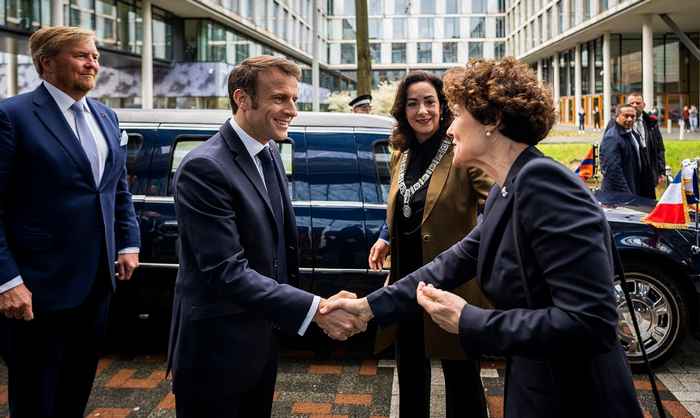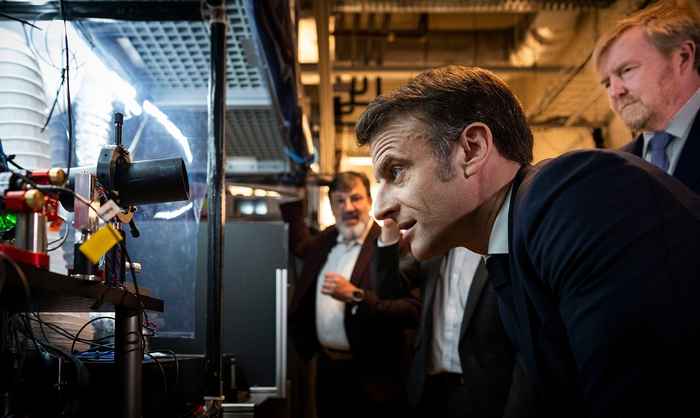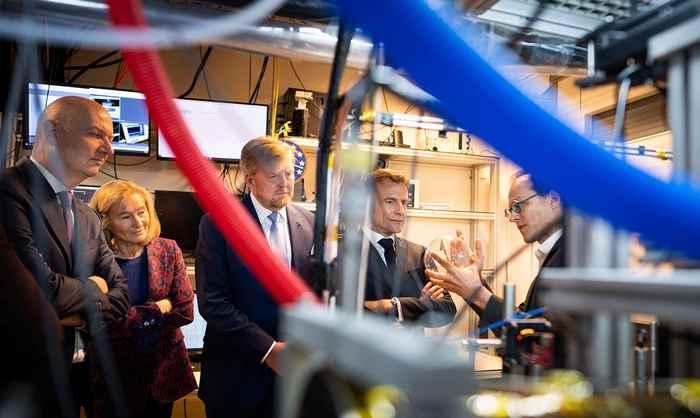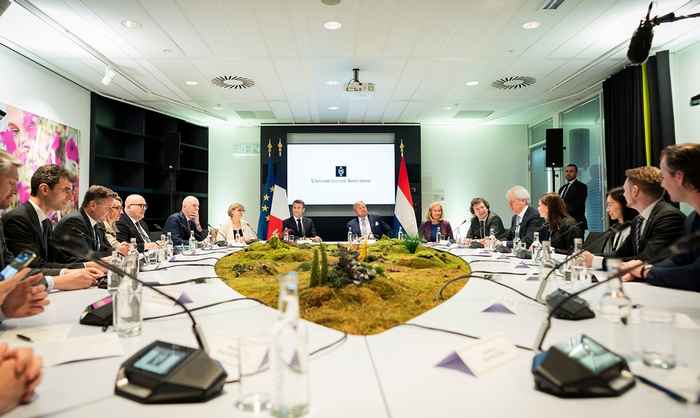King Willem-Alexander and President Macron are given a quantum tour of the UvA
12 April 2023
Groundbreaking
The Quantum Gases & Quantum Information lab of the UvA's Institute of Physics conducts pioneering research in the field of matter waves (such as the realisation of the first continuous atom laser) that can greatly improve future quantum sensors. The lab of the UvA’s Institute of Physics houses one of Quantum Delta NL's testbeds for the Quantum Sensing catalyst programme and is involved in the Quantum Computing catalyst programme in collaboration with Eindhoven University of Technology. The UvA is currently developing a new building at the Amsterdam Science Park specifically aimed at a large part of its quantum activities, which will also house this lab.
Climate change, floods and changes in the oceans
The strong ties with France are part of a trilateral cooperation with France and Germany (under the recently signed MoU). The ambition is for the lab to become one of the hubs of a European shared metrology network. This network uses quantum sensors for various earth observation applications related to climate change, such as floods, dikes and changes in the oceans.
European strategic autonomy
During the round table discussion the King and President Macron talked with CEOs, scientists and investors about autonomy in technology. How can Europe follow its own course and become less dependent on other parts of the world? Rector Peter-Paul Verbeek drew attention to choosing the responsible path: ‘How can we both develop technology and regulate it based on shared European values such as liberty, equality and solidarity? We are managing this quite well already with regard to AI.’



